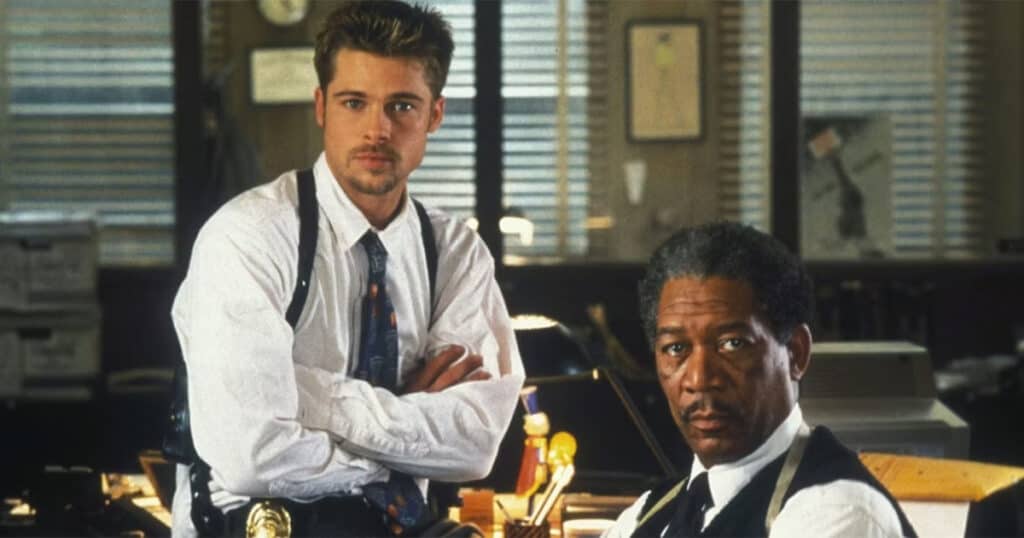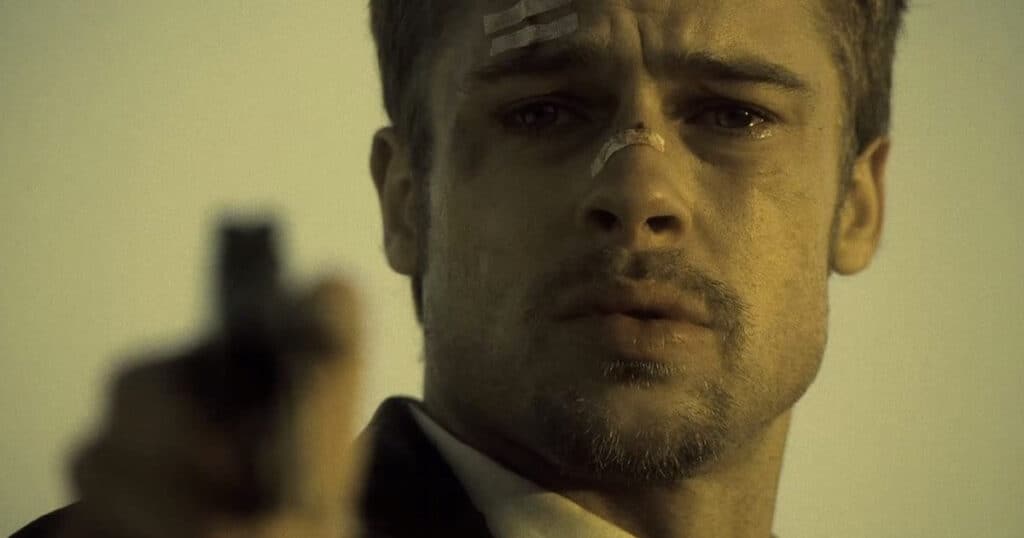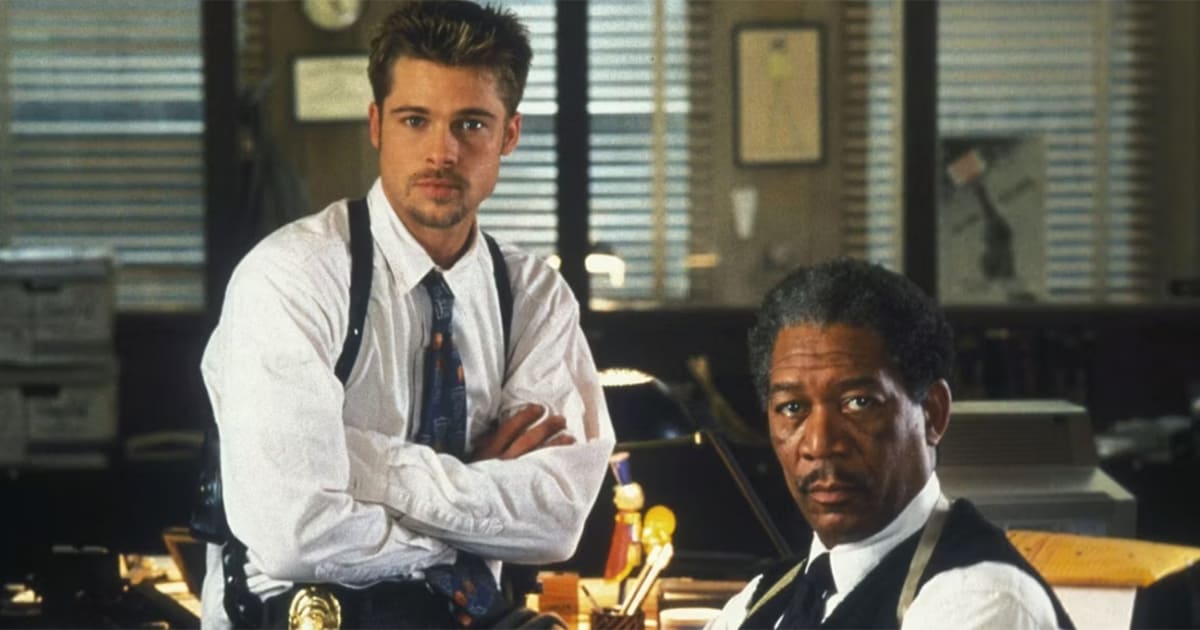David Fincher?s iconic film Se7en, now over thirty years old, offers a profound reflection on the evolution of cinema and the elements that have been lost in contemporary filmmaking. This film stands as a testament to the raw power of storytelling and the darker narratives that once thrived on the silver screen, leaving audiences to ponder what has changed in today?s cinematic landscape.

This week, to commemorate its 30th anniversary, David Fincher’s masterpiece Se7en received a limited IMAX release, serving as an exciting precursor to its highly anticipated 4K release scheduled for Tuesday. As a viewer who missed the original theatrical run, the opportunity to experience this classic in IMAX was thrilling. It had been nearly two decades since I last saw the film, and I was eager to revisit its gripping narrative and chilling atmosphere in a format that does justice to its cinematic brilliance.
What struck me during the screening was the impressive turnout; the theater in downtown Montreal was at least three-quarters full, a remarkable feat considering that Se7en is readily available on numerous streaming platforms. This enthusiasm for watching beloved classics on the big screen, particularly in the immersive IMAX format, reflects a growing trend, as evidenced by the successful re-releases of films like Interstellar and Star Wars: The Phantom Menace. Audiences are clearly eager to relive cinematic experiences that defined their viewing history.
Experience the Stunning Visuals of Se7en in IMAX
The visual presentation of Se7en was nothing short of spectacular. I initially harbored concerns that Fincher, known for meticulous attention to detail, might alter the film’s original aesthetic during the 4K transfer to align it with his later works. Fincher has championed digital filmmaking, embracing a crystal-clear digital style in all his projects post-Zodiac. In the acclaimed documentary Side by Side, he discusses the merits of digital over celluloid. However, Se7en was originally shot on 35mm film using the Super 35 process, resulting in a distinct visual style, further enhanced by a bleach bypass technique that gave it a gritty, haunting look.
It’s worth mentioning the extensive restoration work that was applied to Se7en. Although films shot in Super 35 typically exhibit lower resolution, the IMAX version was simply breathtaking. This restoration was executed flawlessly; it retains the essence of a film shot in the mid-90s, complete with a subtle grain that adds to its authenticity. Unlike the revisionist approaches seen in some modern remakes, Fincher’s careful restoration ensures that Se7en looks better than ever while maintaining its original integrity and character.

Watching Se7en in the IMAX format evoked a bittersweet feeling for me. The reason behind this sentiment is the stark realization that a film of this caliber, with its dark themes and complex narrative, would struggle to find a platform in today’s film industry, particularly among major studios. While a director like Fincher might have the clout to push such a project through today, the extreme content would undoubtedly attract significant backlash on social media. Back in 1995, Fincher was still establishing his career, having faced criticism for his debut film, Alien 3. The landscape has changed dramatically, and studios now tend to shy away from allowing untested filmmakers to create such bold and challenging works.
What is even more astonishing is how films like Se7en were once taken for granted. Despite 2024 being a strong year for cinema, can we truly say any recent release matches the sheer brilliance of Se7en? The art of filmmaking has become increasingly sanitized, and it?s almost unimaginable that a film with such a provocative narrative could not only be released in theaters today but also achieve significant box office success?Se7en was among the top ten highest-grossing films of 1995. While some may argue that newer films like Longlegs draw inspiration from Se7en, they pale in comparison to its gritty realism and emotional depth. In our current era of social media scrutiny, audiences would likely react with outrage to its content, a far cry from the respectful discourse surrounding its release. In the past, even those who were initially critical, like Denzel Washington, eventually recognized the film’s artistic merit.
Ultimately, if Se7en is screening in your area, I cannot recommend it highly enough. Experiencing it on an IMAX screen is a remarkable event that truly highlights its cinematic achievements, and I eagerly anticipate the 4K release. Looking ahead, there?s a critical lesson for film industry executives: the enduring popularity of a film like Se7en demonstrates that audiences still crave challenging storytelling. Despite its availability on streaming platforms, Se7en managed to gross nearly a million dollars over the weekend, playing on just 200 screens with limited showtimes. This serves as a reminder that studios once embraced the idea of producing thought-provoking films that didn?t shy away from controversy. Today’s audiences often seek deeper experiences, and films like Se7en remind us that it?s okay to explore darker themes in cinema.






